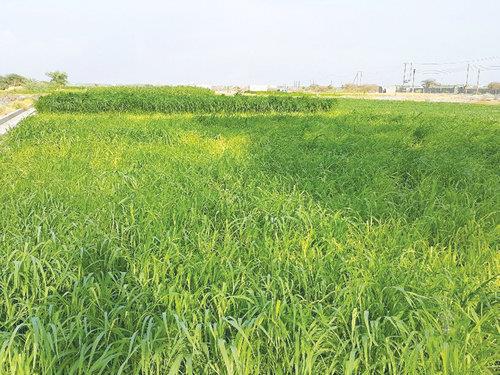Oman second in GCC on food security index
(
MENAFN- Muscat Daily) Muscat-
Oman is among the countries that rank high on the Global Food Security Index (GFSI) 2016. Oman has been ranked 26th globally and second in the GCC. In GCC, Qatar topped the list with an overall score of 77.5.
Oman came second (73.6), followed by Kuwait (73.5), UAE (71.8), Saudi Arabia (71.1) and Bahrain (70.1). America tops the index with Ireland and Singapore in second and third position, followed by the Netherlands and Australia on the fourth position and Germany and France on sixth. 'The Global Food Security Index 2016: An annual measure of the state of global food security' is the fifth edition of an Economist Intelligence Unit (EIU) study, which finds that food security has improved around the globe over the past five years, but hunger and food insecurity still persist. Over three-fourth (89) of the 113 countries in the 2016 GFSI have experienced food-security improvements over the past five years, stated the report. 'These positive developments have largely been driven by rising incomes in most countries and general improvements in the global economy. Falling prices have also positively impacted food security. But weather and climate change-related risks, as well as market-distorting government food policies, pose risks to food prices and availability in the future.' Ranking of countries are based on their performance in three categories of affordability, availability, and the quality and safety of food. In GCC, Oman is ranked first in the availability category, third in quality and safety and last in affordability. Overall GCC countries perform well on affordability because of their extremely high levels of annual income per head, averaging US$67,795. This compares with an average of US$41,092 across high-income countries and US$1,424 in low-income countries, and a global average of US$18,711, stated the report. Qatar tops the Affordability category, with GDP per head of US$134,073 (in PPP terms), Singapore is second, UAE third and Kuwait is sixth. Additionally, the GCC members rank consistently high on the agricultural imports tariff indicator. 'To address the widening gap between consumption and production, GCC countries have steered down their agricultural imports tariffs,' the report stated. Oman is ranked fifth in the world in terms of having lowest agricultural imports tariffs after Singapore, Australia, New Zealand and the US. The Affordability category explores the capacity of a country's people to pay for food, and the costs that they may face both when the food supply is stable and at times of food-related shocks. Availability category assesses factors that influence the supply of food and the ease of access to food. It examines how structural aspects determine a country's capacity to produce and distribute food, and explores elements that might create bottlenecks or risks to robust availability. The US is the top performer in the Availability category, followed by Ireland, Germany and France. Nearly all countries in the top ten of the Availability category are from Europe or North America (the sole exception is New Zealand, which ranks eighth). The third category in the GFSI explores the nutritional quality of average diets and the food safety environment in each country. The Quality & Safety category moves beyond the traditional welfare metrics, such as poverty and issues of access and supply. Portugal ranks first in the Quality & Safety category, followed by France, the US, Australia and Greece.




















Comments
No comment